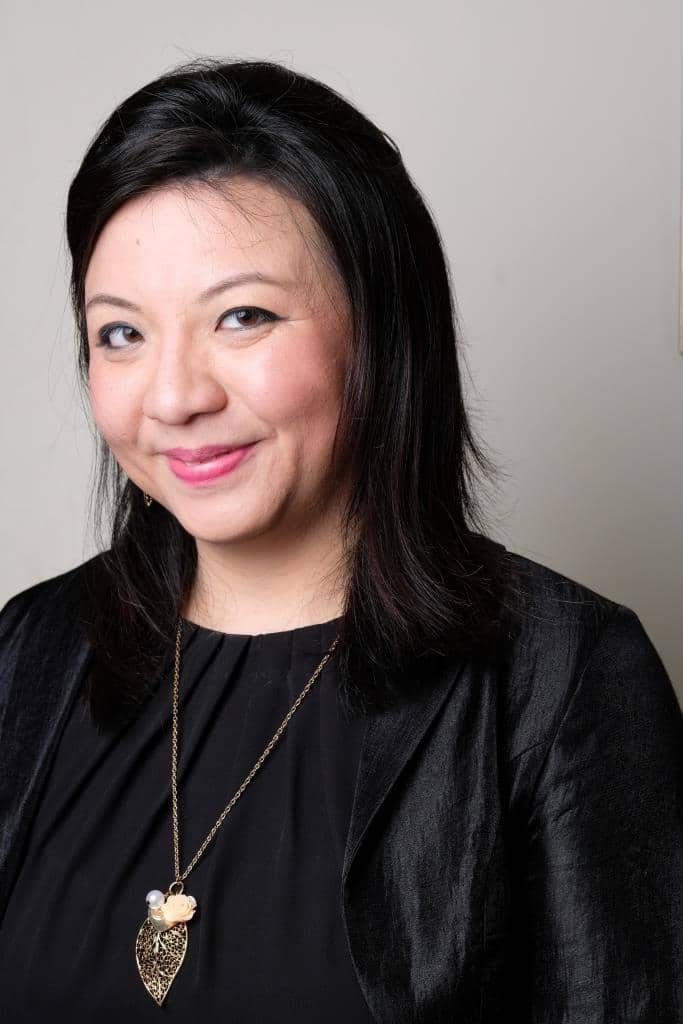DO-NO-HARM: A PATIENT ADVOCATE’S CODE

Equal access to healthcare though education, health literacy and increased patient involvement in the area of digital health
Interview with Debra De Silva-Sun | By Darie Nani
A Health Economist with a physiotherapy background, Debra De Silva- Sun is a volunteer representative with the Swiss branch of the EUPATI (European Patient Academy), conducting an awareness campaign to encourage increased patient involvement in the area of digital health.
A passionate Patient Advocate, Debra’s focus is on education and training to increase the capacity and capability of patients to understand and contribute to medicines research and development and also improve the availability of objective, reliable, patient-friendly information for the public.
What inspired you to be a Patient Advocate?
I think one of the main things is I enjoy interacting with people and communicating with them. I also found that sometimes, having some compassion and taking time to explain benefits, exercises, the pathologies and the diseases leads to better cooperation from the patient. However, over the years, I realised that education and health literacy has been lacking on the part of the patients, and some patients find it hard to trust healthcare professionals after bad experiences. Patients do not know how to access information, and sometimes believe in fake cures or believe that placebos and medications are pushed by big Pharma.
I am very keen on promoting value based healthcare (where patients have a say of what health outcome measures help them), on monitoring health with digital apps and system and the use/promotion of blockchain as a tool in the pharmaceutical industry and healthcare on the whole.
This matter is close to my heart as I have experienced being a patient, as a family member of a chronically ill patient, as well as a healthcare professional. I am keen on encouraging increased patient involvement in different areas of healthcare, as they are the main stars in this arena. I have had clinical experience in working directly with patients, within healthcare facilities in Switzerland, Singapore and Australia, and have seen the impact of what happens when patients are unable to receive equal access to healthcare (perceived or otherwise).
I feel that as there should be someone out there campaigning for the patients, and also for making digital health accessible to everyone, especially those most disadvantaged (the elderly, the homeless, the unemployed, the refugees, the lower and middle income families who may not have the technological advantage). In saying that, digital health policies need to be developed in a way which follows the code “Do No Harm”.
How did you get into this field of work?
I come from Singapore, and have a Bachelor’s in Physiotherapy in Perth, Australia, a Masters in Health Economics and Policy in Lucerne, Switzerland, and I am now doing a PhD in Health Economics and Policy at the Lancaster University. I have lived in Basel-Stadt for the past 10 years. My main motivation for doing health research in the digital health, health policy and reimbursement area, and patient advocacy is due to the passion that I have for patient centric health care solutions in the current volatile business and political climate.
As a part of my interests in combining PhD, digital health work and patient advocacy work, I am interested in knowing more about digital health policies and the surrounding bioethical challenges faced. Policy making is essential to the whole process. However, coming from a clinical point of view (as a physio and patient advocate) I feel that more needs to be discussed in terms of reimbursement and strategies and data ownership and privacy issues, especially with the advent of a global market influx by the Pharmaceuticals, Medical Technology industries, as well as Start-ups dealing with advanced technologies/wearables/health data at the moment.
What defines your work as a Patient Advocate?
Being a patient advocate is about Connecting the dots and making the patients a relevant part of the conversation (in any conversation) with other stakeholders such as doctors health economists, pharmaceuticals, reimbursement agencies, digital health start-ups, computer analysts, machine learning scientists and clinical trials supervisors.
I now work as a Health Economics , Outcomes Research and Health Systems Analyst with a blockchain/ digital health company to understand the digital health ecosystem. This company, DIGIPHARM, is a value based healthcare reimbursement blockchain platform.
I also am doing a PhD in Health Economics and Policy to study the policies and impacts of value based pricing on reimbursement, with a focus on digital health technologies.
What is your vision for the future of healthcare?
One where patient are put at the centre of medicine. Where information is easily accessible and also safeguarded. Where different health care providers communicate with each other and the patient at every step of the process. Where big data, AI and advanced manufacturing like 3D printing can deliver innovative, safer and more effective treatments.
I would also like to develop my project idea, ‘The Red Thread’ which aims to provide measurements and fittings of 3D printed prostheses for children/teenagers/young adults who have been affected by amputations in war zones (see video).
Where does this passion for patient advocacy come from?
My mother. For her tireless efforts in advocating for the renal patients, any friend or relative who needs medical advice, assistance or wound care. She has worked as a nurse since the 1970s, and has made important contributions to the renal community in Singapore and Malaysia.





